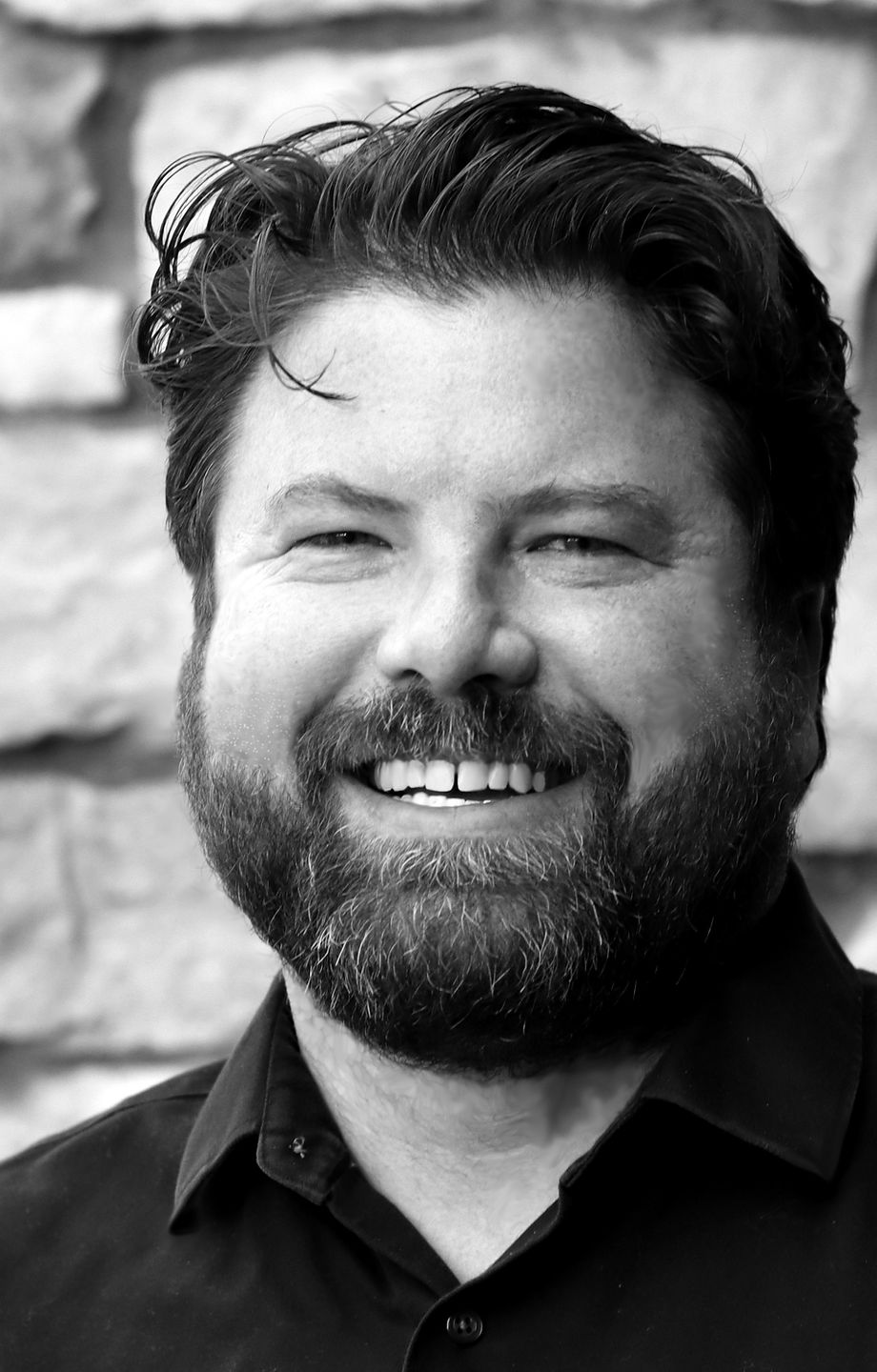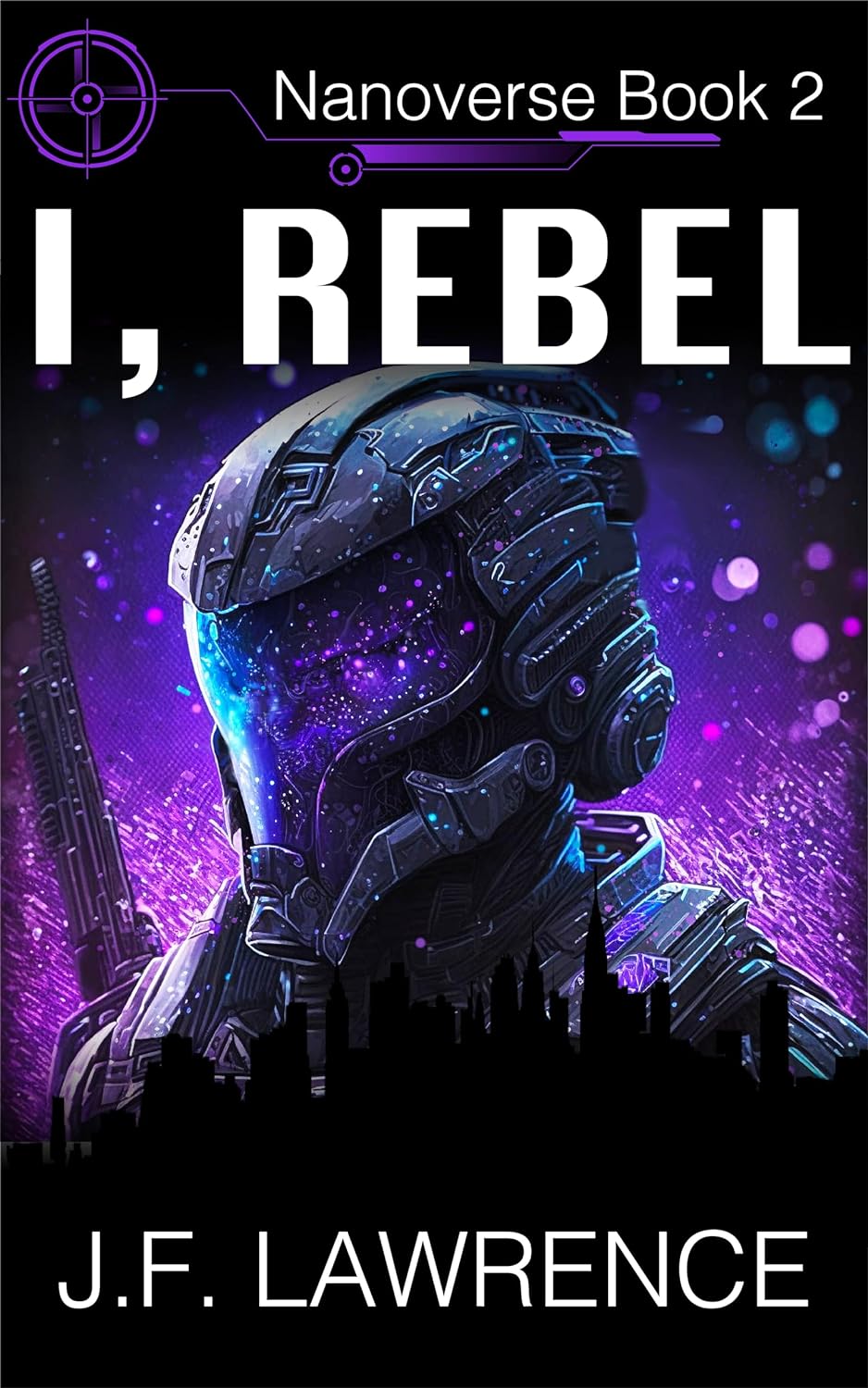Writers’ Connection
Featured Authors
Unique and inspirational publishing stories to share.
J.F. Lawrence
Growing up, J. F. Lawrence was a storyteller through D&D, drawing, painting, sculpting, and more. As a Ph.D. student, and then as a professor at Stanford, he studied geophysics and wrote technical papers about the Earth. As an entrepreneur, he learned how to write with empathy, and to cater words for the people they were intended for. When he became chronically ill in 2018, he began writing science fiction as an outlet for creativity and as an escape from his body.
His latest book, I REBEL, is the Sci-Fi/Superhero sequel to I NANO.
Buy and review it on Amazon today: https://amzn.to/3xvsw5V
I REBEL is the Sci-Fi/Superhero sequel to I NANO. They are aimed at young adults and adults alike. It follows a teen named Mazz as he deals with having a glitchy AI in his brain when everyone else’s works. Accidents follow him wherever he goes. It turns out his malfunctioning AI causes nano-bots to misbehave around him, which he learns are actually misfiring control over the nano-bots, giving him special powers.
I wrote I REBEL to connect with my kids because I have a glitchy brain caused by a chronic illness.

I started writing in my forties as I descended from being a healthy and ambitious person into a human who was severely limited both physically and mentally. Writing was and is an escape from my constant pain, glitchy mind, and unbalanced nervous system.
I chose to self-publish because I think it’s the direction of the future. Due to popular demand, platforms like Amazon, Apple, and Barnes and Noble have been swinging toward digital publications, removing the middleman. These big three account for most of the book sales, and allow authors to remove the middle man, thereby saving the readers money and passing more money on to authors. As much as we complain about it, the approach is a win-win scenario.
My first book, I NANO, was a pain in the you-know-what to publish. I made a ton of mistakes, such as releasing the Kindle version way too early and skipping a step in revisions that I learned later. With each book, I learn new tricks. I am in the midst of writing a series on self-publishing to help other beginning authors navigate the processes without making the mistakes I made. You can find the series on my site, jflhere.com.
My writing happens at the desk in my closet-sized office, which has a view of the beautiful mountains of Colorado. There are no distractions in my little space, particularly when I shut off social media and non-essential phone notifications. Depending on the day and my health, I might write for thirty minutes to three hours, usually in the morning for…reasons. When the muse isn’t there, I edit or work on the publishing aspects of being a modern author.
As I mentioned, my mind is sort of unpredictable, which means I mix things up. It jumbles things up. As Bob Ross said, “We don’t make mistakes – We just have happy accidents.” Some of these make it into an ever-growing document of names. That’s where my main characters’ nicknames came from: Mazz, Wall, and Savvi.

The generation of new material isn’t usually a problem for me. It never has, whether in my previous jobs as a geophysics professor or startup founder. Slashing my words to death also comes with ease. Line editing though? Crazy difficult for me. That sort of attention to detail is almost impossible for my bass ackwards mind.
I commissioned the art for one of my books, then had to alter it heavily in Procreate, Adobe Photoshop, and Adobe Illustrator. Always one to appreciate my experience and take advantage of my learnings, I rely on my youth spent behind the paintbrush (watching Bob Ross) and a decade or so designing webpages for various projects and startups. For the other books, I purchased rights to images and augmented them, which proved to be more affordable, which is one key to being a moderately successful author.
There is only one book that I finished that I left unpublished, my only non-fiction book. It was about my creative process and how killing your good ideas is the most essential part of the creative process. It is often easy to spot the bad and okay ideas. The problem is that you can spend ages on good ideas when you should spend your time on the excellent ones. It turned out that my process only worked for a small fraction of the people I encouraged to use my technique.
In that vein, I have a folder full of bad, okay, good, and best ideas.
For me, the most important aspects of marketing are gaining readers and making enough profit to keep publishing. Impacting readers is the whole reason I publish rather than leaving my novels on the digital shelf.
I keep trying new avenues to market my novels. Twitter. Facebook. Amazon. Newsletters. Blog. Advertising on various platforms. Interviews like this can help a ton, so thank you for having me as a guest. I am grateful for the opportunity to be here.
Sometimes paid advertising works well, though I need to stay on top of it because the algorithms keep changing. Twitter never worked. Sometimes Facebook and Amazon pay off. The real winner so far has been Facebook ads for my Audible of my apocalyptic novel, METAL. I get more readers with the ability to earn money rather than lose money on attracting readers and reviews.
I obtain initial ratings and reviews through several approaches. I ask beta readers to give their honest opinions online. Next, I send out Advanced Reader Copies to authors and readers who have expressed interest in my previous novels, hoping they will provide honest reviews.
I read most of my reviews because they tell me several things, the most important being that someone was impacted enough to write a review. It means I impacted them in some way.
Bad reviews tell me whether I’ve reached my target audience. If my book descriptions and ads aren’t right, they’ll attract readers who won’t like them and leave bad ratings/reviews.
An important factor that many beginning authors miss is that potential readers often look at the number of ratings/reviews as an indication of whether to read it or not, so every rating/review is good for you.
I am an avid audiobook consumer. My eyes tire out easily. It is more important for my mental health to use them for writing and my ears for reading.
My favorite author is Craig Alanson, who writes the long series, Expeditionary Force, a funny tale about a man and his wacky beer-can-shaped AI as they fly around the galaxy in an attempt to save humanity. It has the perfect balance of hilarious and serious.
I just read and listened to The Adventures of Kirk Rogers, Inside the Moon, by C. J. Boyle, who also has a balance between creative fun and serious sci-fi.
That’s a tough question. Books are increasingly oversaturating the market. With millions of new books being released every year, the challenge is standing out, whether you are self-published or traditionally published.
This is why I predict that cooperative publishing houses will become a major force in the near future. Groups of authors will help each other reach their goals, whether they need a line editor, marketing help, or cover art. By exchanging services for free, authors can reach more people with better books.
After my first novel, I learned that using text-to-speach on Google Docs and/or Microsoft Word helps a ton with identifying awkward sentences, repeating words, and a bunch of other minor details that make a book flow much better.
Jump in. Go through all the steps. Sure, learn as much as you can from others, whether through online communities like those on Facebook, Twitter, Reddit, or by reading blogs. But more importantly, make those happy accidents, then iterate. On self-publishing platforms, you can fix anything and everything, even after you publish.
Lawrence grew up as a nerd and achieved nerdiness his whole life. From D&D to geophysics: nerd. From drawing spaceships to forming startups: nerd.
He had so many jobs, from stacking wood to researching in Antarctica to being a professor at Stanford. Writing Sci-Fi is his passion.
Random Facts:
– He had so many concussions he can’t remember how many he had.
– He has a tattoo on his wrist.
– He broke both arms when at seven years old.
– He loves puns.
– He’s lysdexic–not dyslexic.